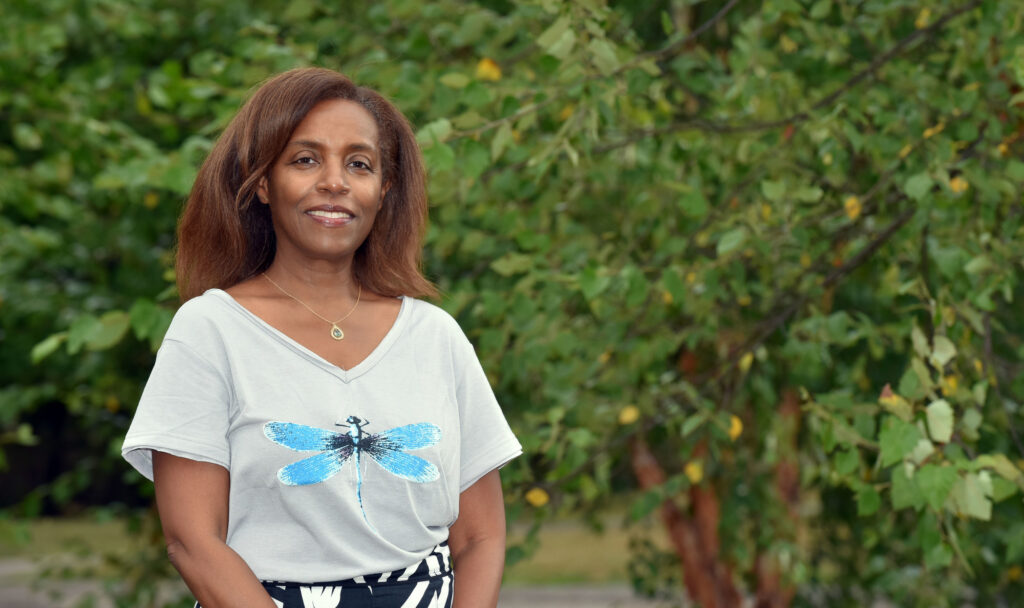Continuing commitment to Infusion initiative

Professor Deyonne Bryant reflects on effort to incorporate diversity and inclusion in curriculum
The team from Wheaton’s Curriculum Committee, Office of the Provost, and Diversity, Equity and Access Leadership has been working collaboratively to advance the learning goals of the previously created Infusion initiative that is now a part of the new Compass Curriculum, which began this fall for the Class of 2024 and beyond. Infusion aims to analyze the structures and categories that influence opportunity and identity—including race, gender, economic status, ability, sexuality and religion in the United States as well as globally—and to incorporate consideration of all into college departments, courses and programs. This semester, magazine editor Sandy Coleman checked in with Associate Professor of English Deyonne Bryant to learn more about the history of Infusion and its importance. Bryant, who has been a faculty member for 20 years, served as curriculum coordinator from 2006 to 2007 and worked with each of the academic departments in establishing departmental goals for Infusion, which was initially adopted in 2001. She also has served on several committees and subcommittees devoted to campus-wide multiculturalism and curricula diversity.
Give us a little background about Infusion.
“The infusion initiative grew out of discussions about curricula diversity in the previous curriculum. Infusion aimed to increase awareness in the faculty about the ways in which disciplinary knowledge itself often upholds structural racism and other forms of inequality. In response, the faculty began a multi-year process of interrogating the premises upon which our academic disciplines were based and transforming our courses to call attention to and correct these often unconscious biases. An example from creative writing is the notion that characters in novels and the speakers in poems are largely understood to be white by default unless their race or ethnicity is specifically announced in the works. This makes whiteness the norm against which all other experiences are wrongly measured. In response, creative writing faculty transformed our courses in order to challenge this notion and introduce the students in our classes to the largeness and complexity of human experiences. Departments and programs across the academic divisions undertook similar processes.”
Why is Infusion important?
“It grew out of the curriculum review work 20 or so years ago. The faculty who initially adopted Infusion agreed that it was important to the curriculum and to the education of Wheaton students who believe in the college’s mission of transforming societies. That continues to be the case, so faculty members in 2020 voted for Infusion to be a part of the new Compass Curriculum.”
What do you hope students get out of it most?
“The Infusion initiative aimed to transform as many courses as possible across the disciplines so that Wheaton students would receive instruction in intersectionality multiple times throughout a single semester during their years at Wheaton. Therefore, much of the work was done by the entire faculty body in transforming courses, whenever possible, to satisfy the initiative. The students who received their degrees during the early years of the Infusion initiative stated in their senior exit interviews that they knew more about issues of cultural diversity than they did when they arrived at Wheaton and felt more confident in their abilities to talk about these issues. I hope the new iteration of Infusion has an even greater impact on student learning.”
How will you incorporate it into your own scholarship and coursework?
“I’ve continued to consciously develop course syllabi that include a diversity of opinions as well as experiences in each semester-long course. And I’m also looking forward to once again regularly offering my Black women writers literature course, which features Black female protagonists and foregrounds the concerns and aspirations of Black women experiencing multiple forms of subordination.”
